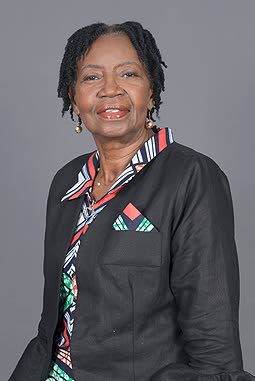Democracy, representation: Tobago 1925-1946

Dr Rita Pemberton
When Tobago became a British colonial possession in 1763, it was destined to be made into a plantation colony to generate profits for its imperial possessors. The island was carved up into estates and its land resources distributed among the wealthy.
There were two immediate consequences: first, the land had to be free of all impediments, so there was no space for the indigenous population whose members had occupied the island for centuries. They were exploited, killed in warfare and squeezed out of the land they possessed, while plantations expanded.
Secondly, labour had to be imported to establish and maintain plantations, and, as had been the practice in the older colonies such as Barbados and Jamaica, Africans were imported to provide enslaved labour. In accordance with the widely accepted Barbados Slave Code of 1661, which established the legal status of enslaved Africans as property, the enslaved African people of Tobago had no rights.
The new plantation owners sought to protect their interests by seeking and obtaining imperial sanction for a representative body which they argued was essential to be able to make decisions on the security challenges they faced.
These came from two sources: the French, who continued to harbour hopes of reclaiming Tobago and the violent rebellions on the island during the 1770s, which came close to destroying the new plantations and panicked the island’s slavers. The slavers argued there was a need for immediate decision and action to deal with both challenges, and the imperial government conceded.
Tobago was administered under the old representative system, and in 1768 the Tobago Assembly and Council were established. Membership was restricted to white, Anglican, English-speaking male property owners at least 21 years of age. These bodies were responsible for the administration through enslavement and emancipation up to 1877, when crown colony government was introduced.
Hence, while the enslavers represented themselves and enjoyed a restricted democracy for over 100 years, the island was administered without representation of the mass of the population, since all officials were drawn from the slavers and their supporters.
But the freed population made their opinions known through various resistance strategies, which resulted in the termination of the old system of government and the introduction of direct crown rule in 1877. However, after emancipation, there developed a growing class of landowners; that movement was facilitated by the decline and crash of the sugar industry, which enabled some freed Africans to become substantial property owners who nursed the hope and expectation of the privilege to vote and participate in decision-making bodies.
This hope was dashed by colony government. For the African population, land-owning was the way to true liberation, but the post-emancipation years were marked by increased protest and resistance to the continued oppression of the black working class and the problems they faced. Members of this class were in favour of union, which they expected would be beneficial to them.
At union with Trinidad, Tobago was allocated a nominee on the Legislative Council, but from 1889 Tobago’s representation there was very ineffective. Those selected were either plantation owners or their representatives, whose first loyalties lay with plantation concerns and not to improving the welfare of the working class.
In addition, the challenges of poor sea communication between the islands prevented regular attendance at meetings, and the cost of travel and accommodation in Trinidad and lack of respect for the Tobago representatives made the position unattractive.
Hence from the first nominee. John McKillop, lessee of Bacolet Estate, through his replacements George Mc Eachrane II and Henry Lushington Thornton, absenteeism was characteristic.
Failing to find a willing resident of the island for the position, the governor nominated a Trinidad member to speak on Tobago matters. This caused the Tobago Planters Association to protest against their lack of representation. AA Cipriani, who owned coconut estates in Tobago, was asked, but had to withdraw because he became bankrupt.
After 35 years of representation deprivation, expressions of discontent escalated, but the prospect of elections in 1925 stimulated much excitement. Although voting was restricted by a property qualification which made only 1,800 people eligible, the campaigns of the contesting candidates provided a new experience for the Tobago population.
For the first time they were privileged to hear plans for improvements which resonated with their daily experiences and needs. The keenly contested elections, a diversion from the long discontent over the island's neglect, stimulated the working class to follow the campaign and support their candidate, even though the mass of the population could not vote.
Popular support favoured James Biggart, a chemist and druggist who had been involved in protests over roads and steamers and articulated plans for improving education, providing schools for both boys and girls, upgrading jetty facilities, improving inter-island communication and attending to the ills which beset the population. Biggart emerged the winner.
The elections of 1925 offered an opportunity for a section of the population to receive the first taste of democracy and the right to vote. The expectations of the non-voting population soared with hopes of delivery from their representative.
These were dispelled, given the challenges that Biggart, a black Tobagonian, faced in the strong white pro-planter presence in the council and the dismissal of Tobago issues that he raised. As an alternative, Biggart proposed that Scarborough be made a borough, with a council to administer its own affairs; this was not accepted by the governor, who was also disrespectful to Biggart.
When Biggart died in 1932, after two terms in office, neither of his successors, Isaac Hope nor George de Nobriga, exuded the passion he had displayed or stimulated the enthusiastic popular support he had received. The people were dismayed at the outcome.
The people of Tobago experienced a rollercoaster of expectations and disappointment as the issues they had hoped would be resolved in 1925 continued to plague the island for 21 more years, between 1925 and 1946, without relief.

Comments
"Democracy, representation: Tobago 1925-1946"